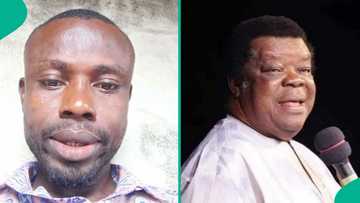He Swapped Mourning For Signatures: The Parish Ledger That Saved Our Inheritance
Two days after we buried my papa, my uncle walked into the compound with a plastic folder clutched under his arm. His eyes were dry, his shirt freshly pressed. "I have handled the land issue," he said, waving a crisp document before the mourners had even cleared their plates.
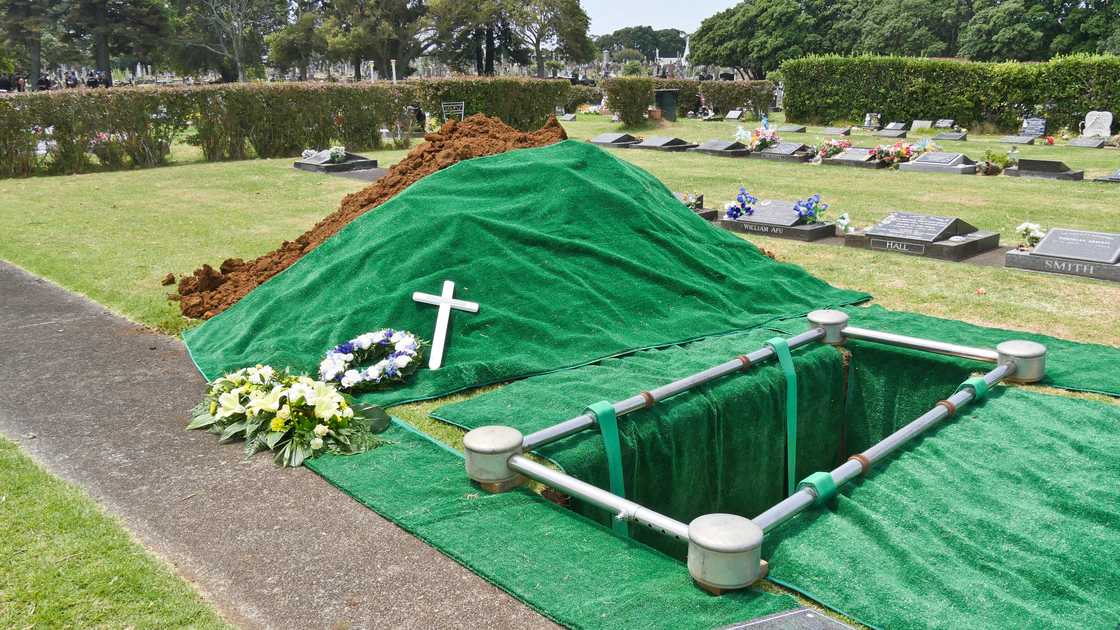
Source: UGC
Mama froze. I stood beside her, clutching the contribution record book she had guarded since before I could write my name. The community leader glanced at the paper and said it looked valid. Valid?
Papa had been in the ground for less than a week, yet somehow his brother had managed to produce a Certificate of Occupancy (C of O).
That night, I could not sleep. I lay awake listening to the crickets cry beyond the riverbank, and each sound felt like laughter at our helplessness.
Mama whispered prayers in the dark, one hand resting on the notebook that contained years of receipts, parish payments, and school levies written in the Reverend Father's hand.

Read also
Regina Daniels: Singer Dencia reacts to actress, Ned Nwoko's marriage asga: "Old grandpa turtle"
"This is our proof," she said, though her voice trembled.
At dawn, I decided to fight. I began to search for evidence, not in government offices, but in places people often overlook: old church records, a church elder's memory, and a neighbour's testimony. Somewhere in those faded pages lies our truth.
Weeks later, when a young lawyer opened that same plastic folder in court and pointed out the misspelt seller's name, my uncle's forged transfer fell apart like wet paper. The judge voided the deed.
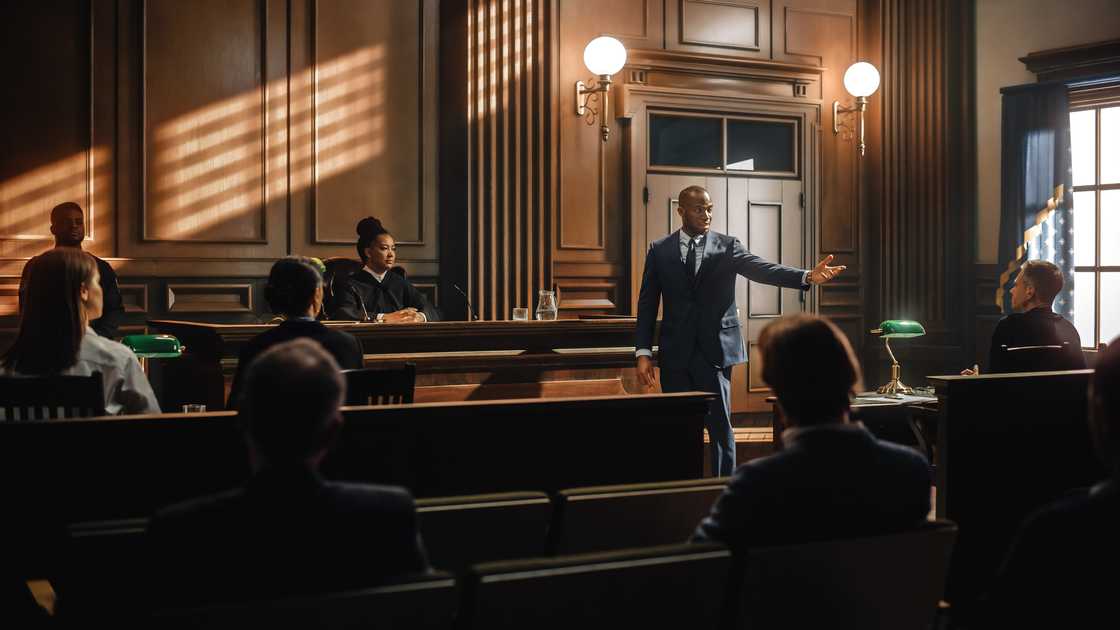
Source: Getty Images
We planted a hibiscus hedge along the boundary, bright and sharp like survival itself, and hung a small wooden sign that read Mama's Farmstead. When my uncle returned months later, pretending to make peace, I handed him ugu from the garden and said, "Land is for the living. Help us till."
Papa's death cracked our family open like dry earth. He had been the quiet pillar who signed every form, attended every community leader's meeting, and negotiated every dispute with calm authority.

Read also
Emotional dad makes U-turn as daughter cries bitterly at school gate: "We are on our way home"
When he died suddenly of a stroke, we lost not only a parent but also the only man who understood the full story behind our land.
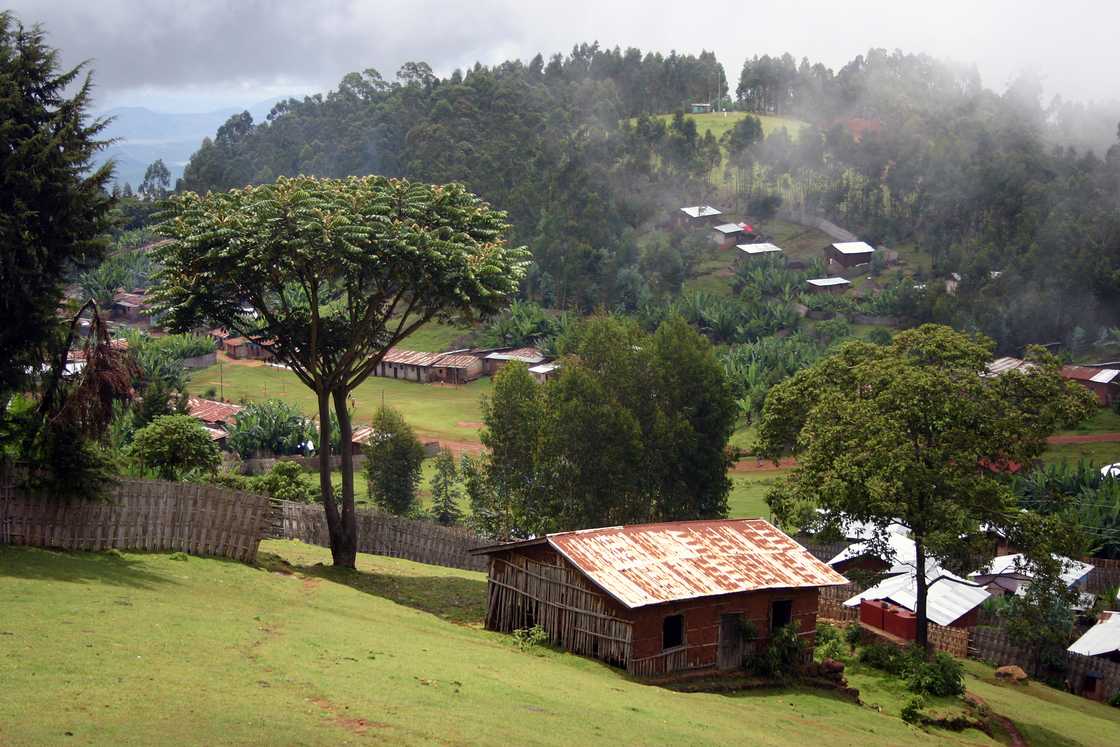
Source: Getty Images
Our home in Enugu sat on a gentle slope overlooking the valley. The soil was red and forgiving, the kind that stained your hands but yielded food even in lean seasons. Papa had inherited part of the family plot from his own father, who had cleared it with a machete and planted cocoa trees that still lined the lower edge.
The land had no formal title, only a thread of history held together by parish receipts, elders' signatures, and a school ledger from the 1970s.
Papa trusted his younger brother, Uncle Kunle, who lived in town and wore a tie even on weekends. Whenever the Lands Registry came around, my father would hand the documents to his brother Kunle. "He is educated," Papa would say with quiet pride. "He knows these things."
Mama never argued, although she often sighed when he turned away. I later realised those sighs were warnings we had ignored.
When Papa fell ill, Kunle arrived with a briefcase and concern that sounded rehearsed. He spoke mostly about succession forms, survey fees, and boundary marks. I thought it was love wrapped in responsibility. I was wrong.

Source: Getty Images
After the burial, when we expected mourning, Kunle returned holding a plastic folder and a document bearing his name. He said Papa had signed a transfer before he died. The community leader looked it over and said it seemed legal.
Neighbours murmured in confusion. Mama sat still, her fingers twisting the hem of her wrapper. I saw fear in her eyes, the kind that comes when grief meets betrayal.
That night, we lit a small fire and spread out every paper my father had kept. Among them was a parish ledger showing that Mama had paid land dues to St. Peter’s Parish for twenty-five years. Each line carried the church elder's signature. Papa had always joked that the church's ink was stronger than a government stamp.
I remembered his words and decided that if our future depended on signatures, then I would gather every one of them.

Source: Getty Images
The following week, I visited the Lands Registry in Nsukka. The clerk, a tired man with red eyes, flipped through files and shrugged. "The new deed is clean," he said. "Maybe your mother sold it and forgot."

Read also
Regina Daniels' brother reacts to drug supplier allegation levelled against him by in-law, Ned Nwoko
I almost laughed. "Forgot to sell land?"
He leaned closer and lowered his voice. "Sometimes signatures are borrowed."
Borrowed. That single word sank deep. Someone had copied Papa's handwriting or used his old ID photocopy to push through a fake transfer. I left the office dizzy with anger.
Mama wanted to give up. "We cannot fight your uncle. He has money, he has friends."
But I could not watch her lose the only home she had built. I began tracing evidence like a detective. I walked to St. Peter’s Parish with Papa's old notebook. The parish clerk, an elderly woman named Beatrice, led me to a back room filled with dust and candle soot. There, stacked on wooden shelves, were ledgers bound in twine.

Source: Getty Images
Together, we flipped through the pages until I saw it; Mama's name, written in careful blue ink beside Papa's, recording annual land offerings. The entries stretched from 1994 to 2021. Beatrice stamped a certified copy and blessed me. "The dead speak through honest ink," she said.

Read also
Man who had met Regina Daniel's father in Abuja breaks silence: "Money is not the ultimate"
Next, I found our neighbour, old Pa Adewale, who had helped Papa mark the boundary stones. He agreed to testify that he had witnessed the sale when my father bought the plot.
Then came the hardest part: facing Uncle Kunle. I went to his office unannounced. "Why are you doing this?" I asked.
He smiled, leaning back in his chair. "Family land should stay with the family. You will marry and go away. What use do you and your mother have for acres you cannot manage?"
I clenched my fists. "Papa left it to us. You know that."
He chuckled. "Prove it."
That challenge became my fire. I met a young lawyer through a friend, fresh from law school, eager to fight injustice. When I showed him the forged deed, he noticed something small but powerful. My father's name was misspelt Chideibube instead of Chidiebube as it appeared in his ID and all the church records.
"That is enough," the lawyer said. "We will file for revocation."

Source: Getty Images
Weeks later, in the courtroom, my uncle's confidence began to crumble. The magistrate asked about the parish receipts, the church elder's testimony, and the mismatch in spelling. The clerk from the Lands Registry confirmed that the forms appeared scanned and reprinted.
When the ruling came, the words felt like music: "The transfer is declared null and void."
After the verdict, my uncle disappeared from the village for months. People said he had gone to Lagos to cool off. But one Sunday morning, as we were tending the hibiscus hedge along the boundary, he appeared at the gate holding a Bible.
"I came to make peace," he said.
Mama's hands paused mid-air. "Peace begins with truth."
He nodded slowly and sat on a tree stump. "I was angry," he said. "When my brother died, I felt left out. He always trusted you two more than me. The Certificate of Occupancy (C of O) was my way of taking back respect."
For a moment, I almost pitied him. Grief can twist love into greed. He claimed he only wanted to manage the land until Mama grew old, but greed rarely stops halfway.
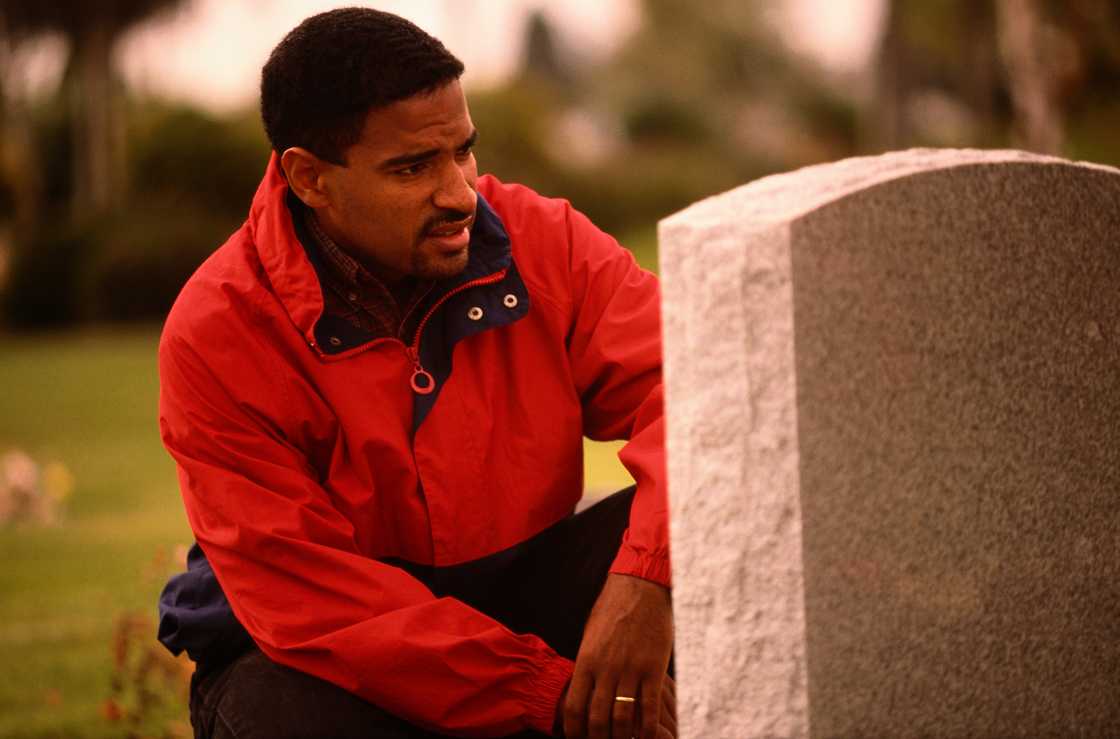
Source: Getty Images
He asked if he could at least visit the graveside. Mama allowed it. As he knelt by Papa's cross, I saw the man who had once carried me on his shoulders during harvest.
Later that week, I met the young lawyer to thank him. He told me something surprising. "Your uncle's case is common," he said. "Many families lose land because no one keeps records. You won because your mother wrote everything down, and because the church keeps faith in ink."
That evening, I reviewed the parish ledger copy again. Each signature felt like a heartbeat from the past. Papa's faith in paperwork, Mama's habit of keeping receipts, and even my stubbornness had all conspired to save us.
What I thought was a simple act of bureaucracy had become a memorial.
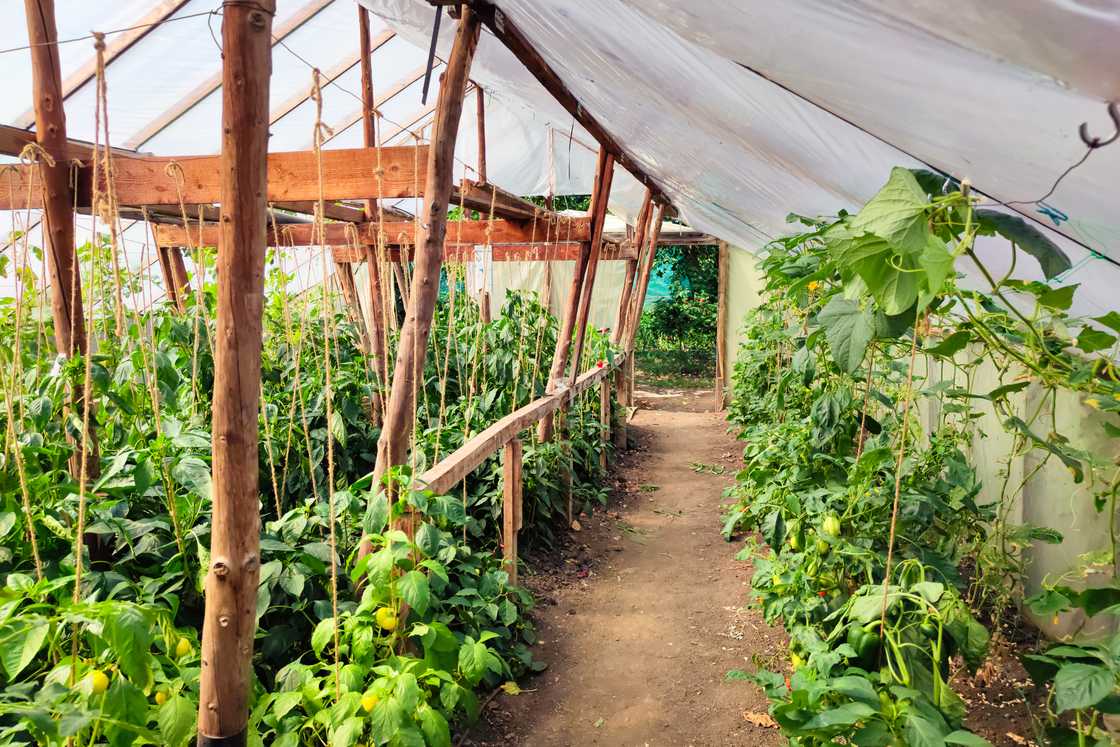
Source: Getty Images
With the land safe, life slowly returned to normal. We built a small greenhouse on one corner and planted ugu, tomatoes, and efo riro greens. The hibiscus hedge grew into a bright fence, keeping our boundary alive and visible.
When the community leader came to inspect the area, he smiled and said, "Now this is what a registered homestead should look like."
For the first time, Mama's laughter filled the compound again. She began keeping a new notebook, neatly recording every expense and harvest yield. "Paper remembers," she liked to say.
Months later, my uncle returned, this time quietly. He looked thinner, older. He asked if he could help around the farm. Mama agreed on one condition: that he would treat the land as home, not as ownership. He nodded and picked up a ọgụ̀.
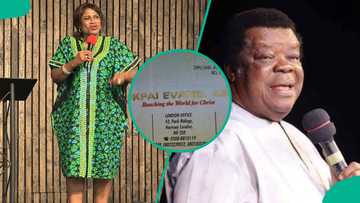
Read also
US-based woman who once cooked for Uma Ukpai displays his card she found, vows to treasure it
Working side by side, the silence between them softened. Grief had once divided our family; now the same soil was teaching us patience.
One evening, as the sun melted behind Olumo Rock, Mama turned to me and said, "Land only has meaning when it feeds love."
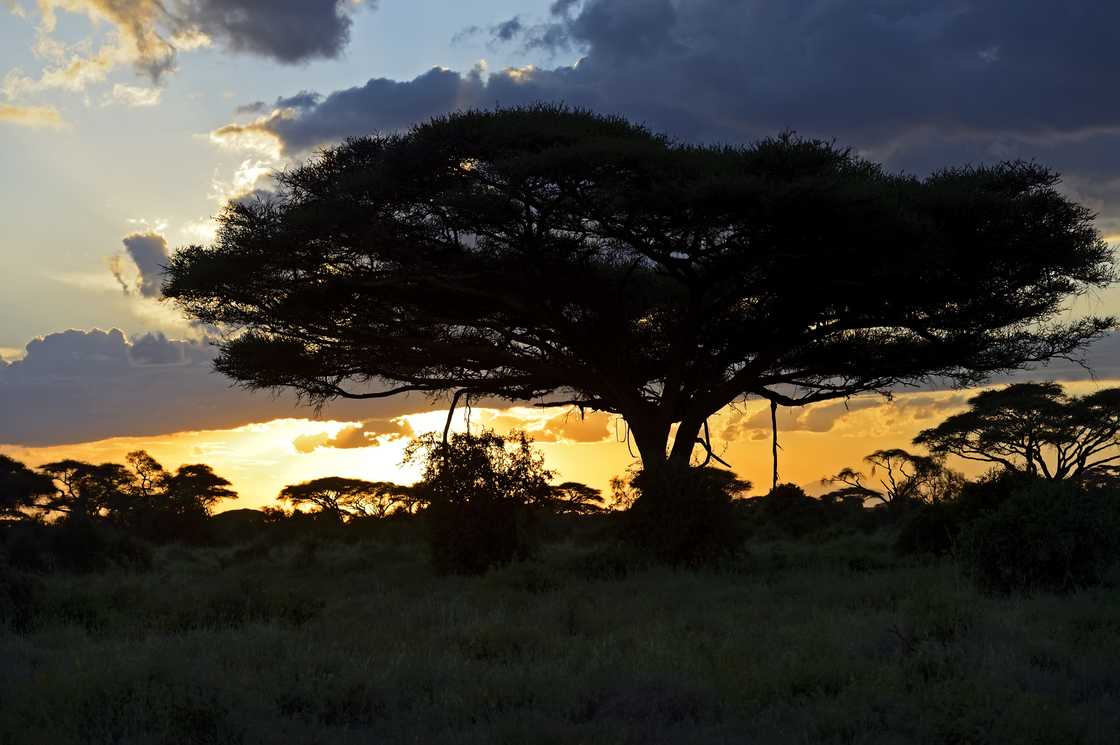
Source: Getty Images
I understood her then. The fight had not been about property alone; it had been about dignity.
In time, we installed a small wooden sign at the entrance: Mama's Farmstead. It was not to boast but to remind ourselves that memory can protect what documents sometimes cannot.
The young lawyer continued to visit occasionally. He told me our case had inspired a local legal workshop about land fraud. "Your story will help other widows," he said.
I smiled. "Then our pain was not wasted."
We used part of the harvest profits to repair the church roof, the same parish that had preserved our history. When the Reverend Father thanked us during Sunday Mass, he said, "This family proved that God writes through faithful hands."
That night, as rain pattered gently on the iron sheets, I realised something profound: the land was not just saved for us. It was redeemed for everyone who would ever step on it, plant in it, and remember the truth that ink and honesty still matter.
When Uncle Kunle brought visitors later that season, he introduced me as "the daughter who fights with papers." We all laughed, but beneath it lay pride, a strange, healed pride.
We had reclaimed more than soil. We had reclaimed peace.
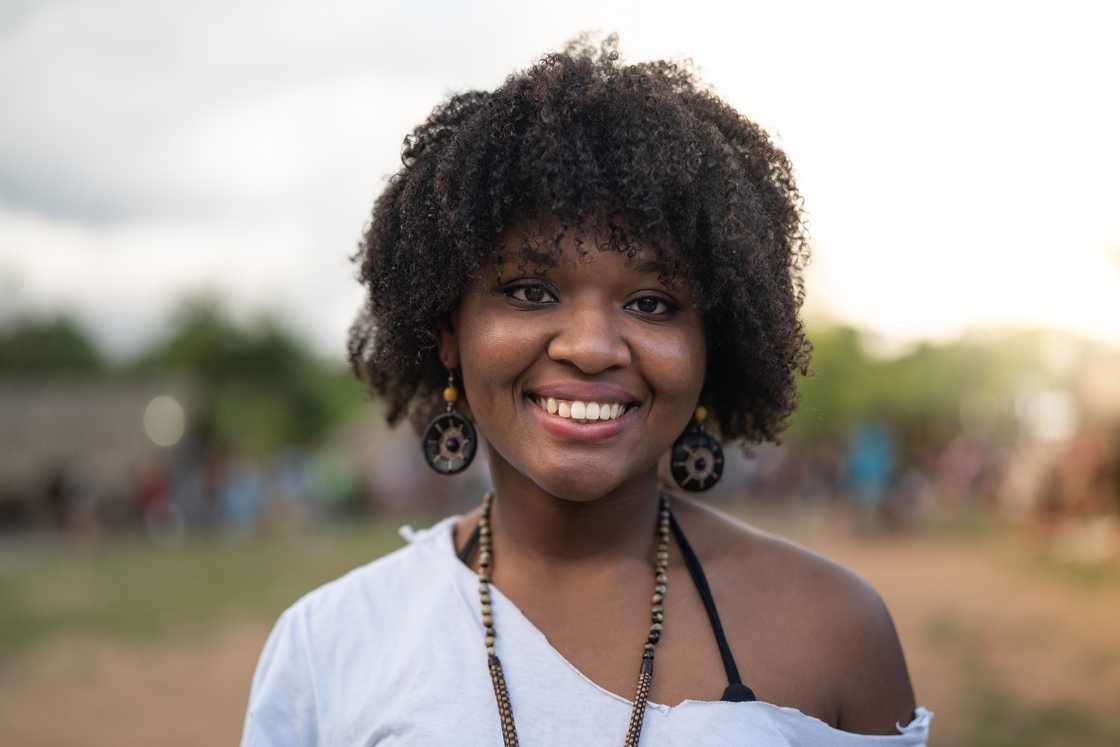
Source: Getty Images
Looking back, I have learned that inheritance is not guaranteed by blood. It is guarded by memory, truth, and courage. The world often assumes that documents are weapons for the rich, yet sometimes they are shields for the poor who dare to keep them safe.
If Mama had not written every parish due, tithe, and expense, we would have had nothing to show when the forged deed appeared. Those old parish ledgers, faded and simple, became the courtroom's loudest witnesses.
In Nigeria, land is more than property. It carries the stories of birth, marriage, and death. Losing it feels like losing a family's soul. That is why record-keeping, though often mocked, remains a sacred duty.
People ask if I have forgiven my uncle. The truth is complicated. Forgiveness came slowly, like rain on dry soil. I saw how grief and envy can hide behind formality, how pain can disguise itself as ambition. But I also saw redemption. By the time he bent to till beside Mama, he had laid down his pride.
Now, every planting season, I visit the parish office to stamp our updated receipts. The same shelves that once held proof of our ownership now carry evidence of our gratitude.
Sometimes, I see other widows queuing with their envelopes, and I help them fill out forms or make copies. They often whisper, "May God protect our farmsteads." I tell them, "He will, but write it down too."
The fight for land taught me that justice may take time, but truth never rusts. Paper can tear, but signatures outlive lies.
I often walk along the hibiscus hedge fence at dusk and touch the sign that reads Mama's Farmstead. It reminds me that honouring the dead does not mean surrendering to loss. It means protecting what they stood for.
So I ask you, a simple question: if someone dared to challenge your family's legacy today, would you have proof strong enough to speak when you cannot?
Because one day, someone may arrive at your gate holding a folder and a smile that hides ambition. On that day, may your truth be written clearly enough for even a judge to see.
This story is inspired by the real experiences of our readers. We believe that every story carries a lesson that can bring light to others. To protect everyone's privacy, our editors may change names, locations, and certain details while keeping the heart of the story true. Images are for illustration only. If you'd like to share your own experience, please contact us via email.
Don't miss out! Join Legit.ng's Sports News channel on WhatsApp now!
Source: YEN.com.gh







